Lingoda Hands-On Review: Everything You Need to Know
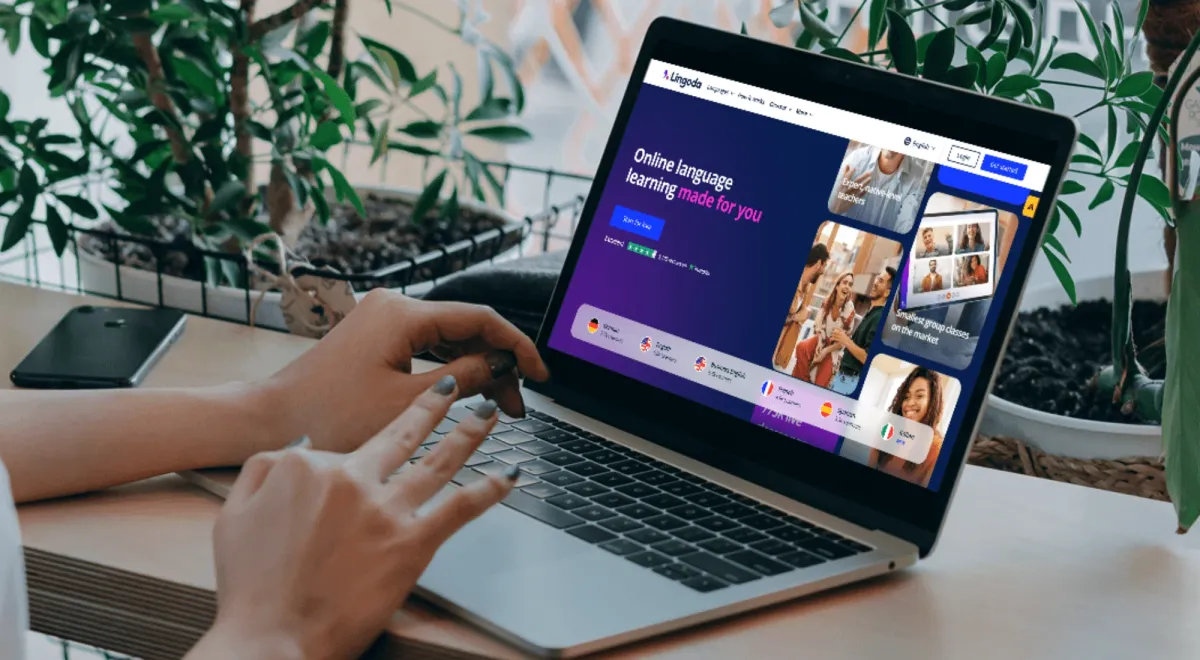
One of the best things about being a digital nomad is the ability to travel and experience life in different countries but trying to master a foreign language from the road? It’s tough. Take it from someone who moved to Japan with only 6 Japanese classes under their belt.
That's why when we heard about a new online language platform designed for flexibility, we knew we had to test it out. We are talking about Lingoda, an online language learning platform that offers live classes taught by native-speaking teachers.
As full-time travelers, we’re no strangers to language learning. We’re always testing the latest software to add to our list of the best language apps for travel so you know you're in good hands for this review.
What is Lingoda?
Lingoda is a language learning platform for live online classes. You can think of joining Lingoda as kind of like enrolling in a language school, except it's 100% remote and with way more flexibility.
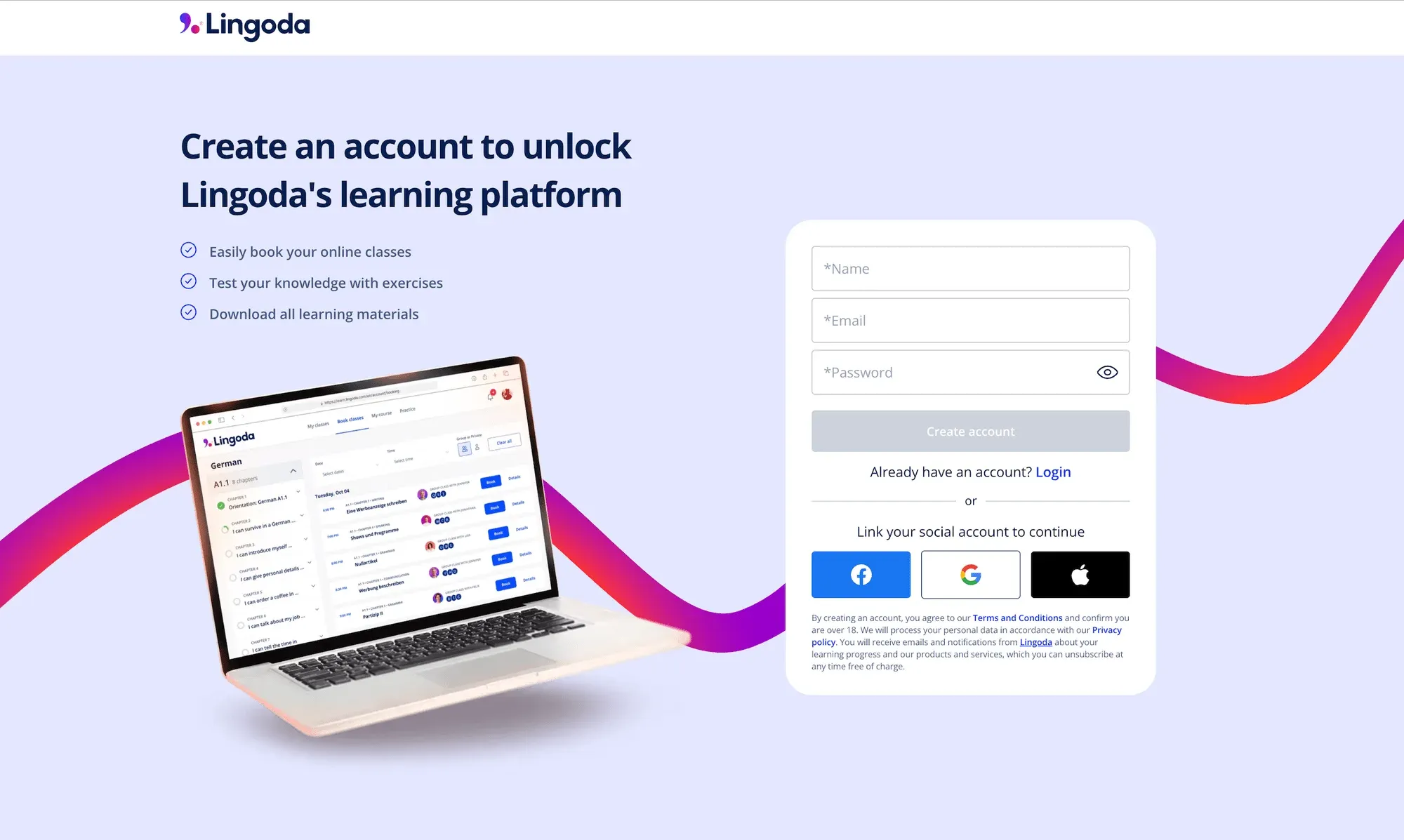
Lingoda takes students from total beginners (level A1.1) through to fluency (C1) by following a strict curriculum of virtual classes. Every level is broken up into 12 chapters with each chapter taking 4 lessons to complete.
The one-hour classes are taught by native speakers via video call and as you take more online lessons, you’ll move up through the Lingoda levels.
One thing to know is that Lingoda definitely is not just a memorization app. Unlike a lot of the other language learning apps in the space, Lingoda doesn’t rely on flashcards and daily practice exercises to teach you a new language as they think real classes are way more important.
Although you can use the Lingoda ‘Practice’ tab to review what you learned in class, the vast majority of your time on the platform is spent in live lessons.
How Does Lingoda Work?
When signing up to Lingoda, it was quite a smooth process. First, you need to select a language and then you get asked a few questions about whether you’ve studied it before, your language goals, and how many hours a week you want to spend learning.
The language choices are limited to French, Spanish, German, Italian, English, and Business English, so it's something to keep in mind if you plan to learn a language that is not the above.
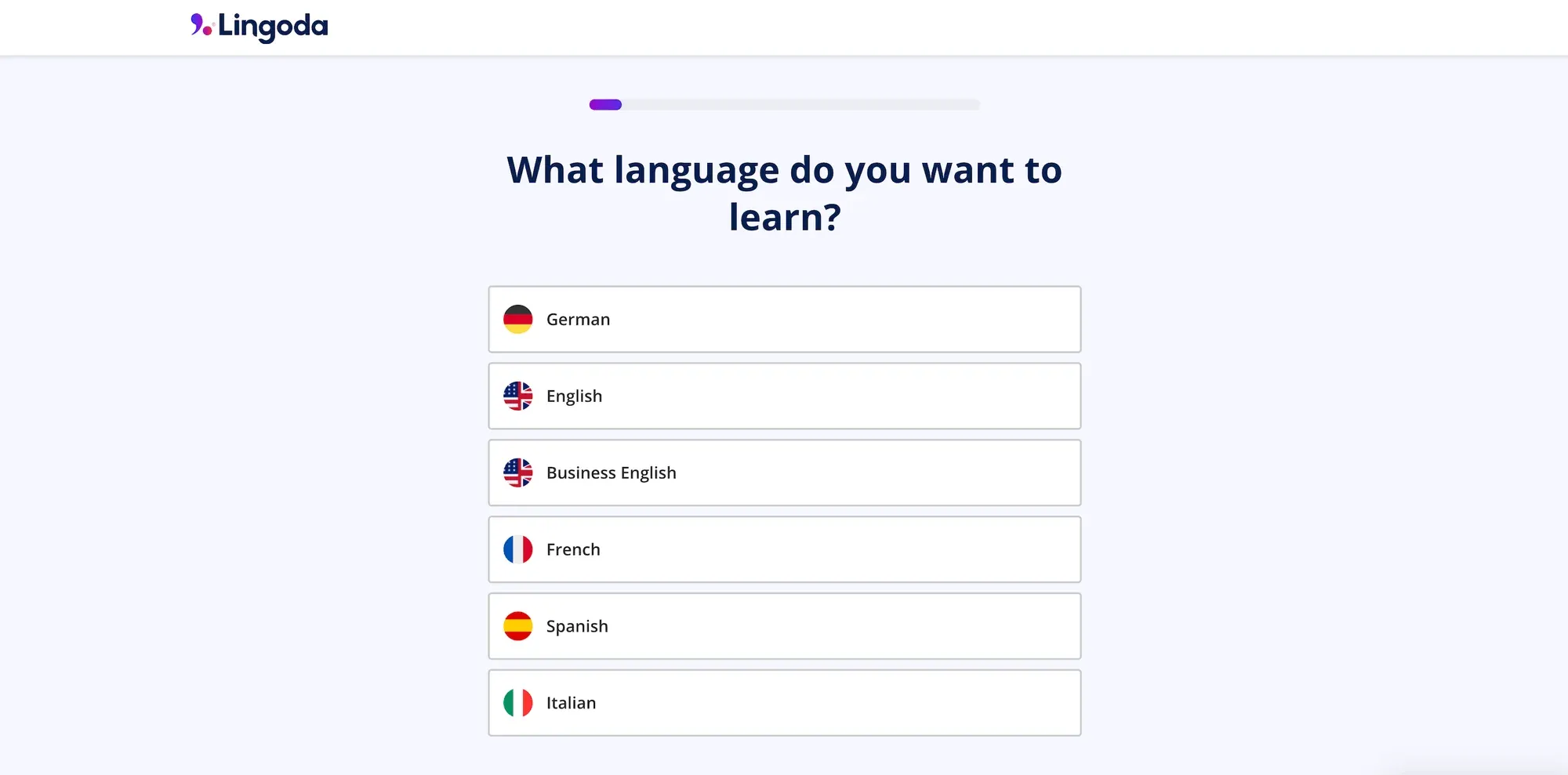
Lingoda works by you purchasing a certain number of group or private class credits to use each month.
For group classes, you can choose 5 for $79.99/month, 12 for $159.99, 20 for $229.99, or 40 for $429.99. If you prefer 1-on-1 lessons then plans start from 5 for $249.99 up to 40 private classes for $1179.99/month.
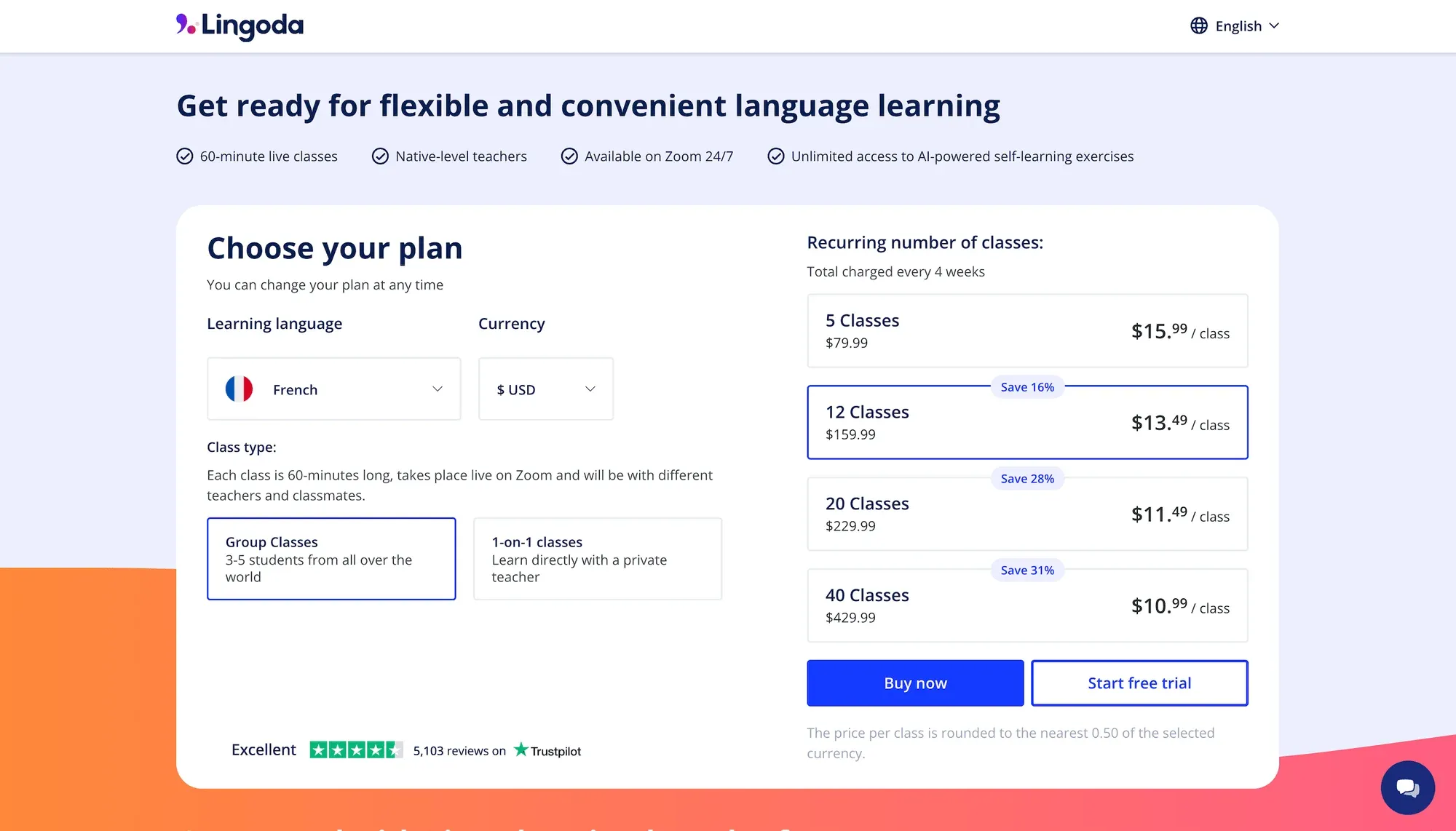
From there, Lingoda will invite you to take a quick test to decide what level you should start at.
I’ve taken a lot of these level assessment tests in the past and have to say, Lingoda really seemed to get it right! The test was quick and perfectly placed me at B1.1 so that I didn’t waste any lesson credits on things that were too advanced or I knew already.
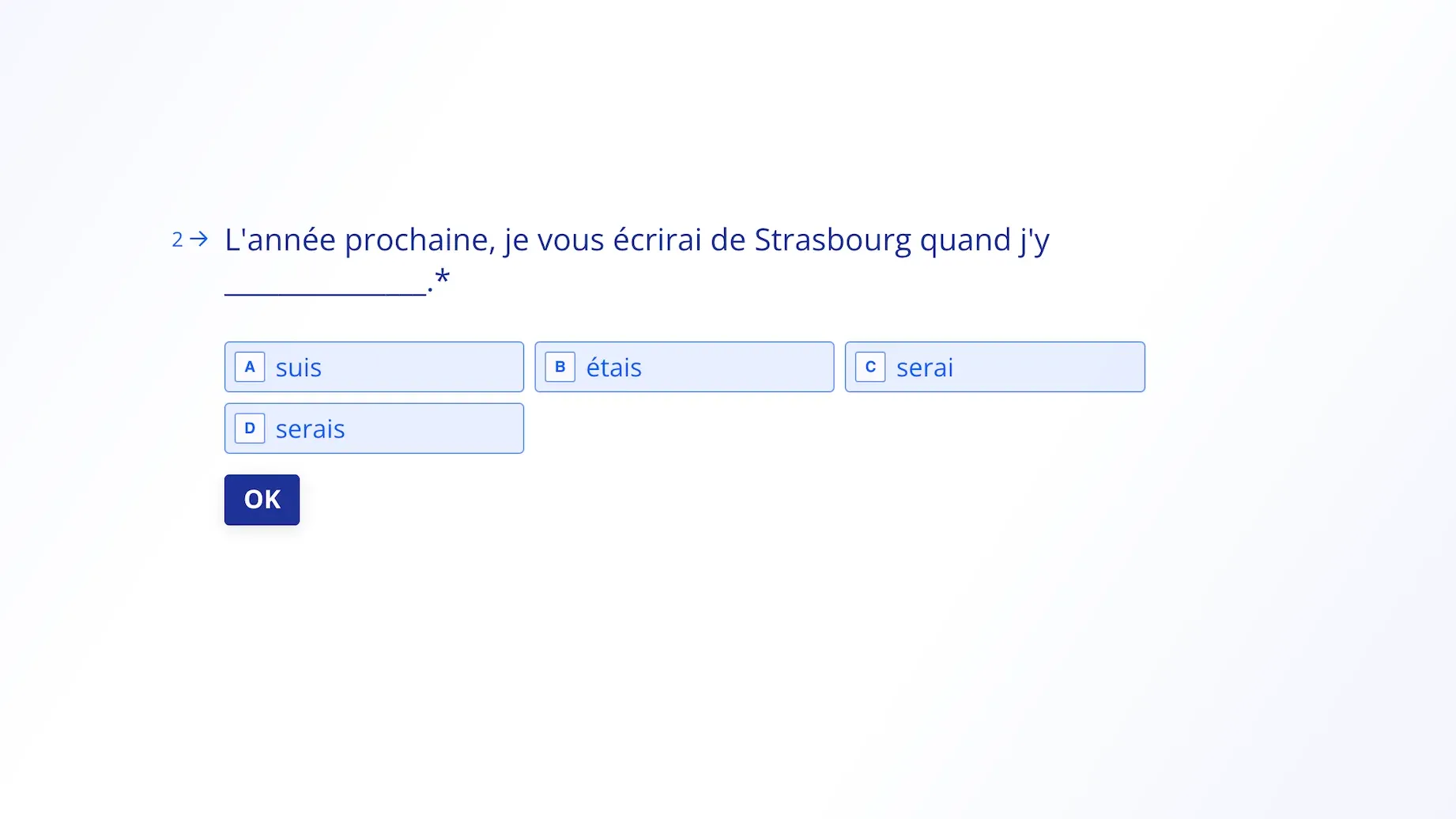
Once set up, you can go to the ‘My Course’ tab to see the different chapters at your level.
After completing a class, you’ll get a green tick next to it making your progress easy to track. You can also skip lessons if you think you can get by without them, although to officially complete a level you’ll need to have taken 45/50 classes.
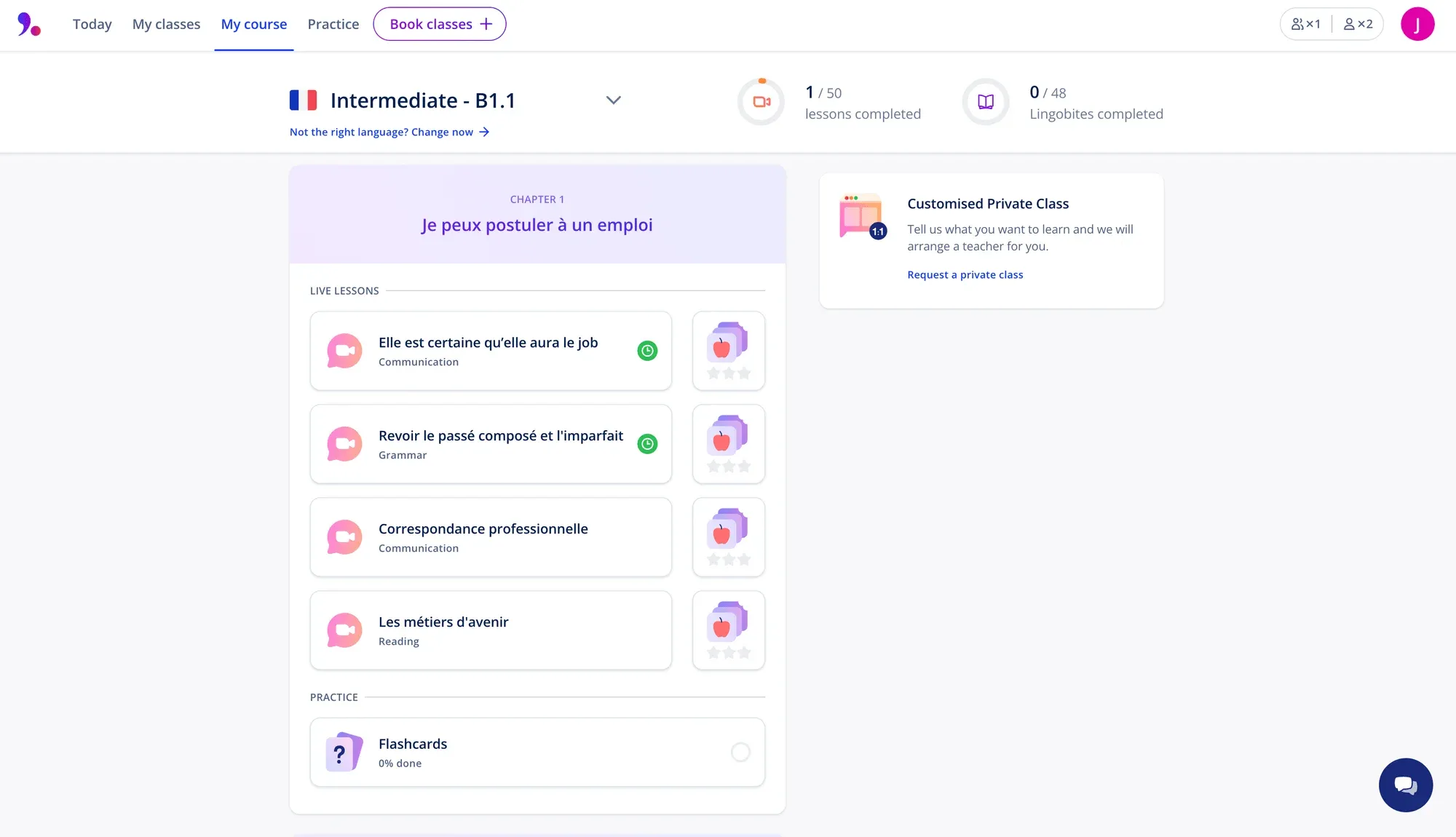
When you want to schedule a class, you can click the ‘Book Classes’ button and filter by lesson, date, and time. The classes happen pretty frequently and you can book into an available class right up until it begins. Before booking, you can also see how many people are currently going as well as some information about the teacher once they’ve been assigned.
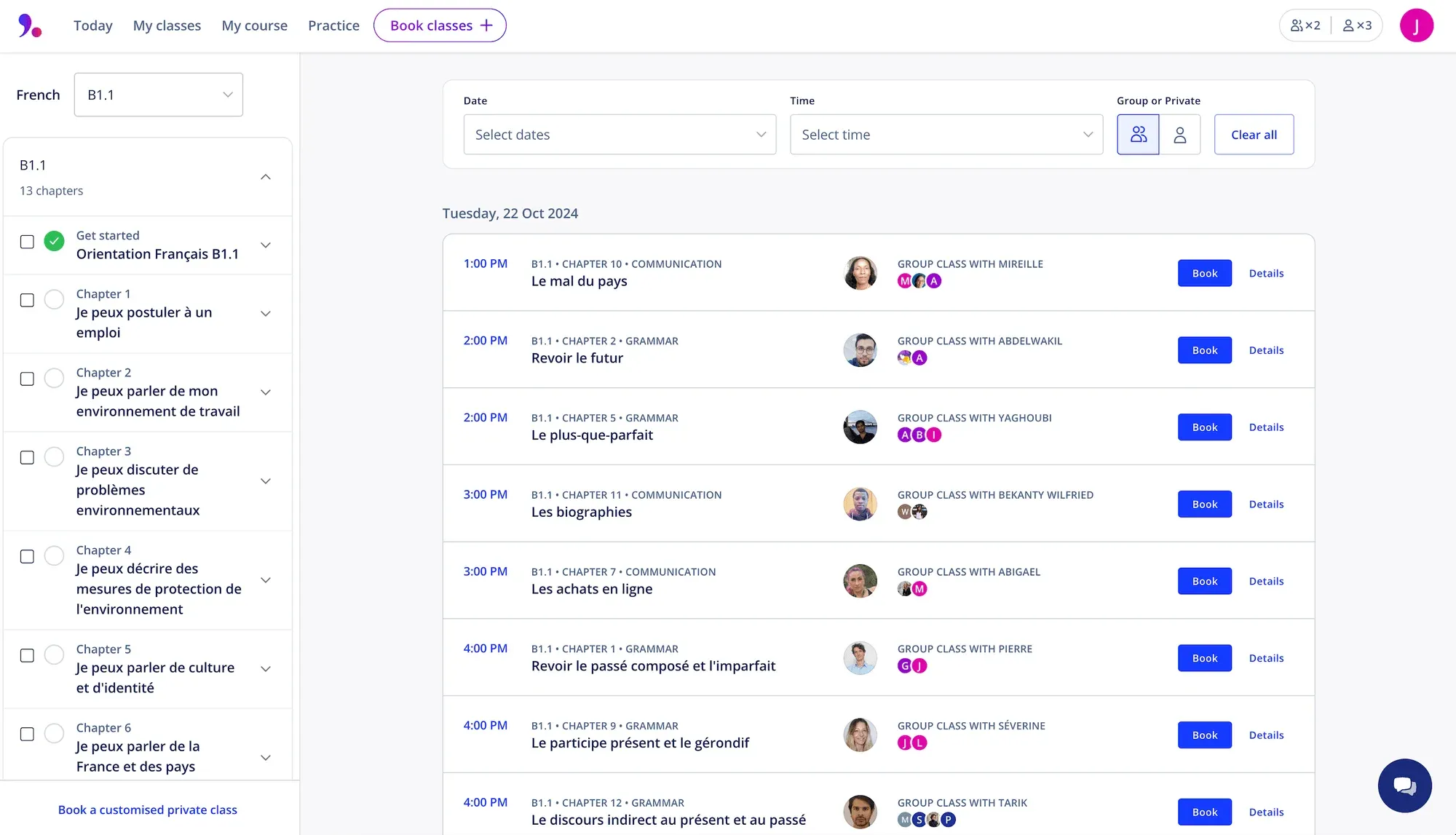
If you cancel within 30 minutes of booking a class or 3+ days before you’ll get your class credit back, but any later than that and the credit will be wasted.
This can be frustrating if you’re a digital nomad with an ever-changing schedule, so I recommend waiting to book lessons until you’re certain you’ll be able to attend.
What is the Method Lingoda Uses for Language Learning?
Lingoda follows the Common European Framework of Reference for Languages or CEFR for short. It’s an internationally recognized method that breaks up language learning into 3 stages: Beginner (A1 and A2), Intermediate (B1 and B2), and Advanced (C1).
CEFR has been proven to help people master a foreign language by teaching students to not just recognize words and phrases but be able to communicate clearly and confidently. As Lingoda follows this recognized standard, once you complete a level you’re given an official CEFR certificate that can be used to prove your proficiency at school or work.
When subscribing to Lingoda, you can choose between 3 different course structures:
Lingoda Flex
Lingoda’s most popular course type, Flex gives students just that - total flexibility. You can choose the number of classes per month, scheduling them as you go at times that work for you. As a result, you don’t stick with just one teacher and will have different classmates for each lesson.
Lingoda Teams
If you prefer a bit more routine in language learning, then you can opt for Lingoda Teams instead. This is a 3-month course where you choose between 4 or 6 hours of class a week with the same classmates and teacher. Prices range from $200–$300/month depending on the course and not all levels and languages are available just yet.
Lingoda Sprint
Sprint is designed for people who like a challenge by committing to 2 months of language learning with either 15 or 30 classes a month. If you follow the rules (attend all the classes in the Sprint period, never miss a class, always arrive on time) then you’ll be rewarded with 50% cashback in cash or lesson credits - it’s hard to argue with an incentive like that.
Sprint costs $225/month for 15 classes, or $355/month for 30.
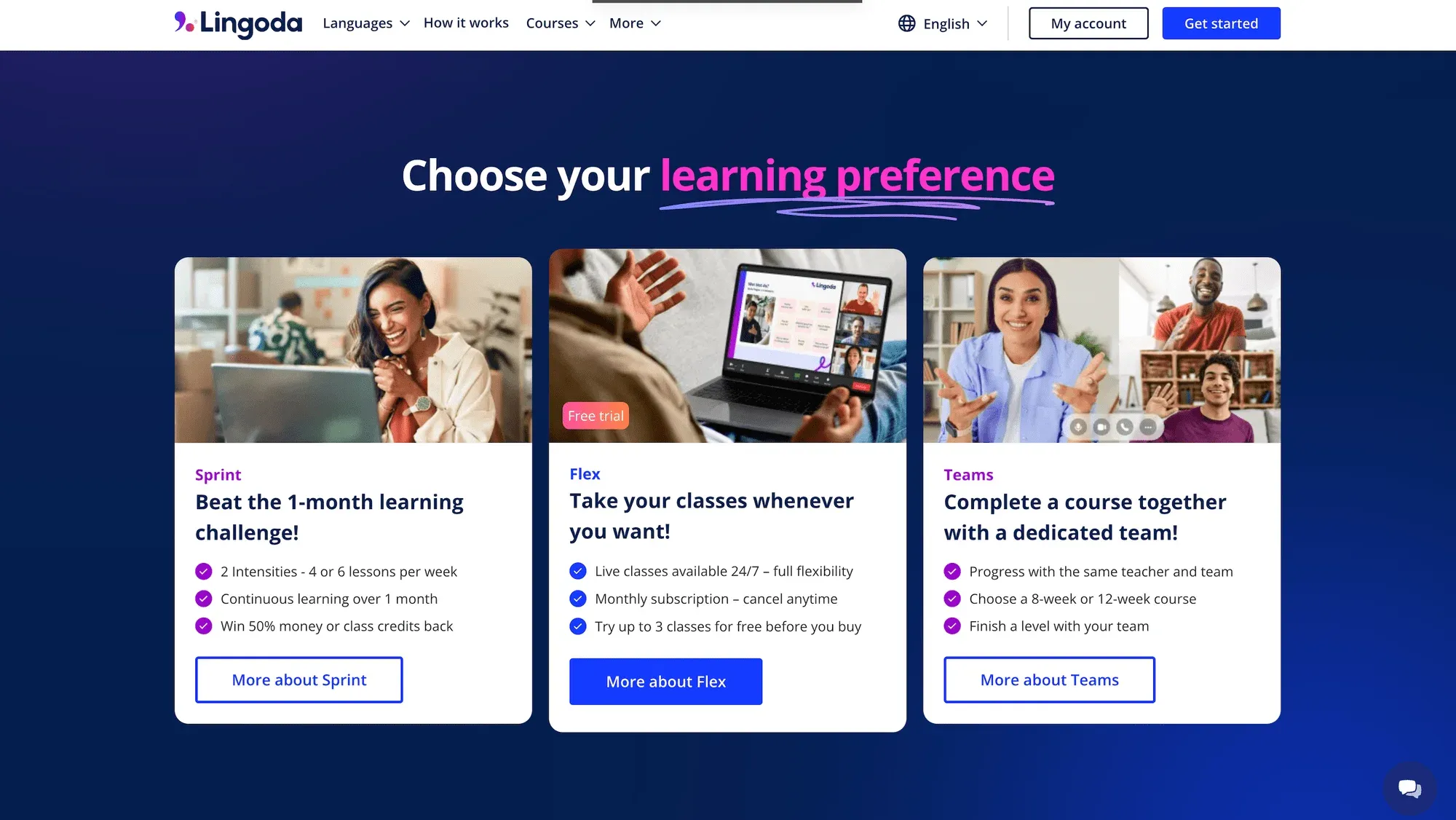
Our Experience Testing Lingoda and Pros and Cons
As a remote worker who’s lived all over the world, I’ve personally tried a lot of language-learning apps. To fully test out Lingoda, I took private and group classes and used the practice function over the past month.
What I liked about Lingoda
On the plus side, I can say that Lingoda offers flexible classes that don't require any advance commitment, making it perfect for those with ever-changing schedules. The platform also boasts a clear course structure and progress tracking, so you always know where you stand in your language learning journey.
What's more, the expert native-language teachers really know their stuff, ensuring you're learning from the best.
On top of that, they provide learning resources to study and review what you've learned, reinforcing your knowledge outside of class (something I really appreciate).
What Lingoda could improve
What I really wish Lingoda offered is more languages. The selection is currently limited to French, Spanish, German, Italian, English, and Business English, which may be a letdown for those looking to learn something a bit more niche.
If you need to cancel a class less than 3 days in advance, you'll unfortunately lose that precious class credit, which is another thing that could be improved.
It's also worth noting that Lingoda comes with a higher price tag compared to language-learning apps out there. But as they say, you get what you pay for, and with Lingoda, you're investing in a comprehensive, interactive and personalized language learning experience that a language learning app cannot offer.
Would We Recommend Lingoda and Is It For You?
Overall, I really liked Lingoda. The ability to schedule classes whenever you want is ideal for a digital nomad schedule, particularly if you’re moving across different time zones. There’s always an available class for your chapter within a few days and I liked that after class the teacher provides personalized feedback and notes.
The teachers, although all native speakers, can vary a lot in their accents, origins, and approaches to teaching. There’s always going to be some teachers you like more than others and though eventually you’ll know who to book with (and who to avoid), there can be some trial and error in the first few weeks.
One thing to note is that on several occasions, I was the only student in my group classes meaning I got a private lesson for the cost of a group one - this could be good or bad depending on your style of learning.
To really make the most of your Lingoda subscription, you’re going to need to put in the work to prep and review lessons outside of class. The classes are great for practicing what you’ve learned and getting comfortable with new vocabulary or grammar, but you don’t spend too much time actually learning brand-new concepts.
If you’re location-independent or just traveling the world, and want to learn a language without committing to specific weekly classes, then Lingoda is definitely worth checking out. It does require a significant investment of your time and money, but there’s no denying that they can get you confident in conversing in a foreign language so much quicker than flashcard-style apps.
Ready to Learn a New Language?
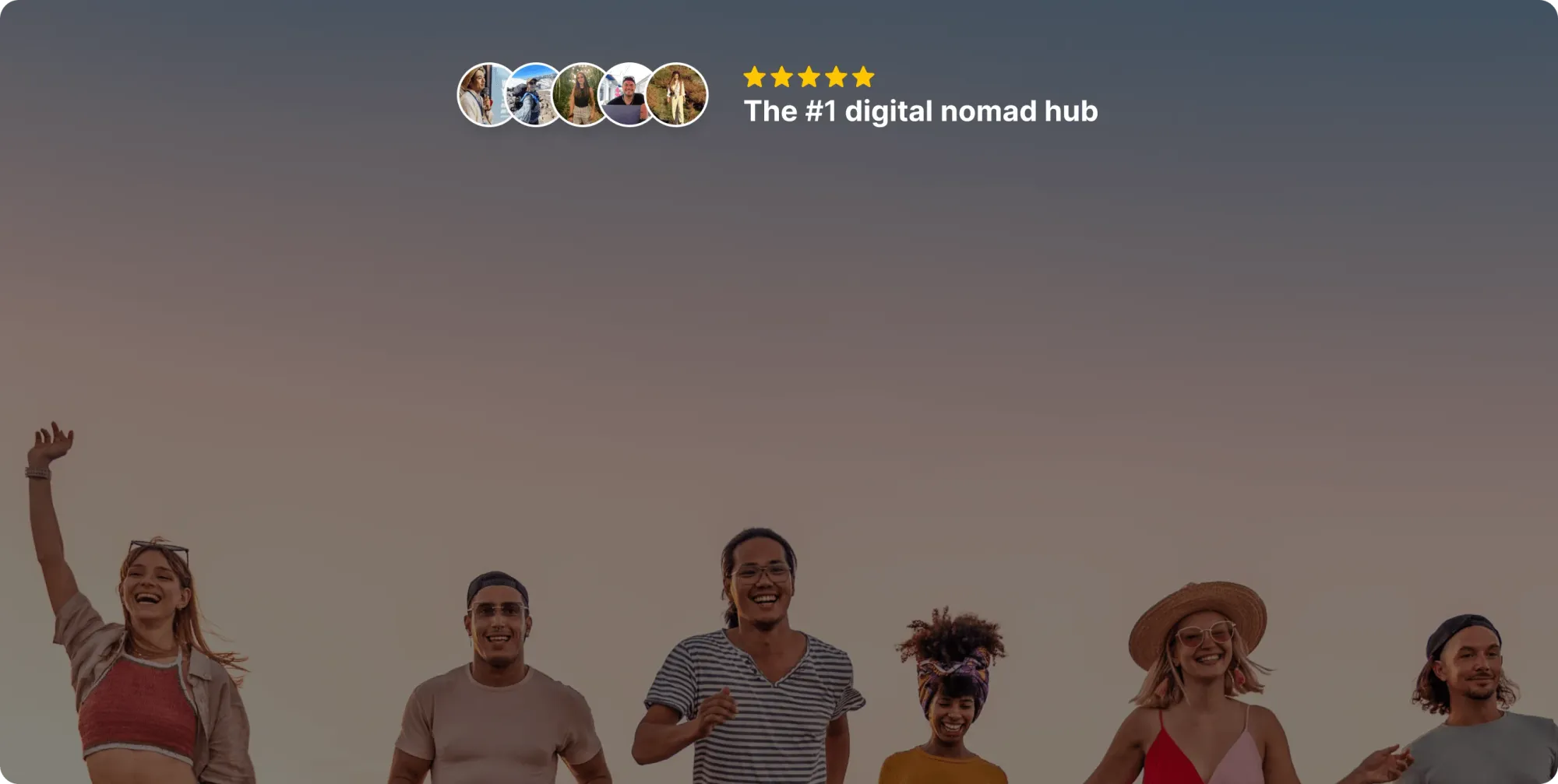
Join our global
digital nomad community
Join us for free
Freaking Nomads is supported by you. Clicking through our links may earn us a small affiliate commission, and that's what allows us to keep producing free, helpful content. Learn more


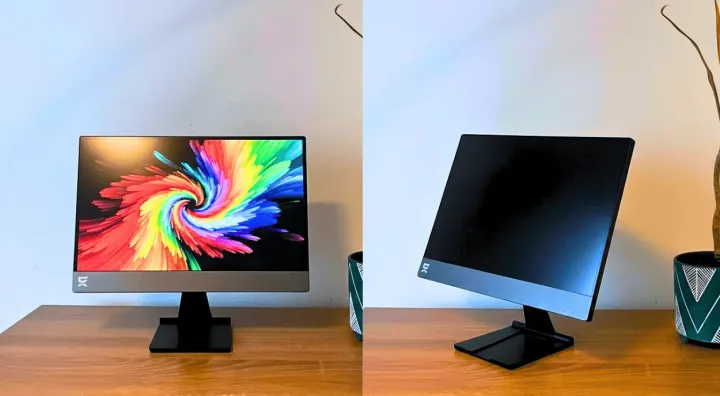

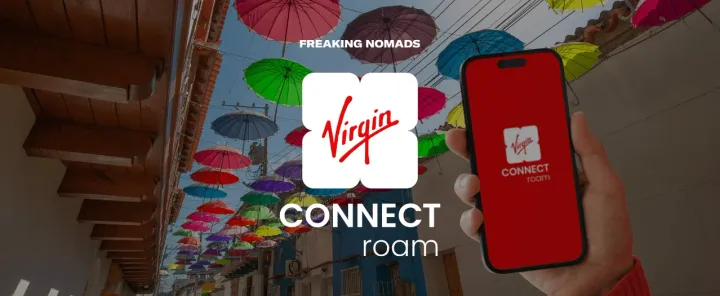
 Travel tips, hacks, and news
Travel tips, hacks, and news Exclusive travel discounts
Exclusive travel discounts Offers and promotions
Offers and promotions Digital nomad inspiration
Digital nomad inspiration Latest articles form our blog
Latest articles form our blog